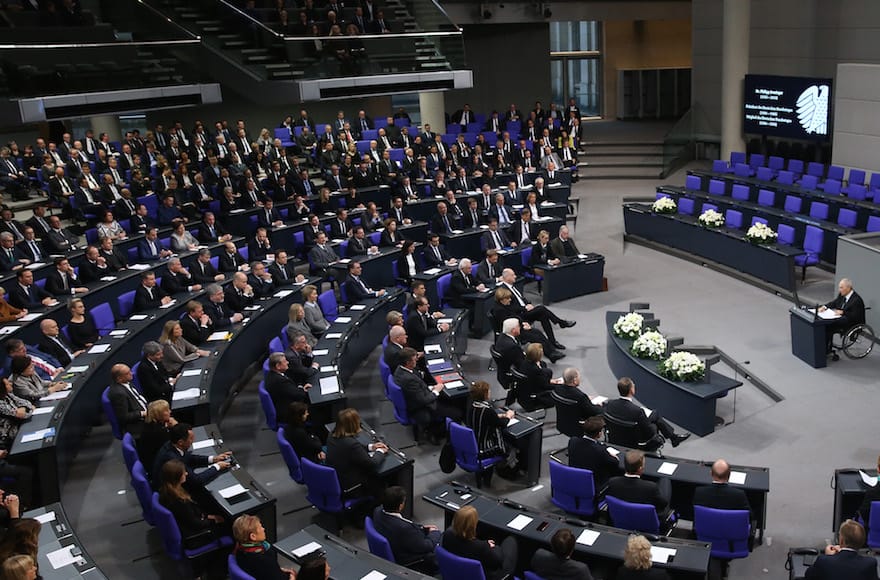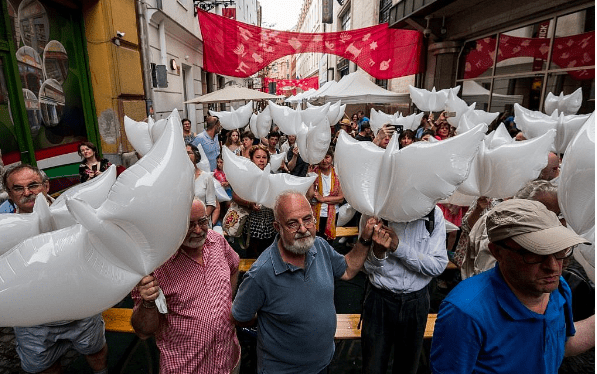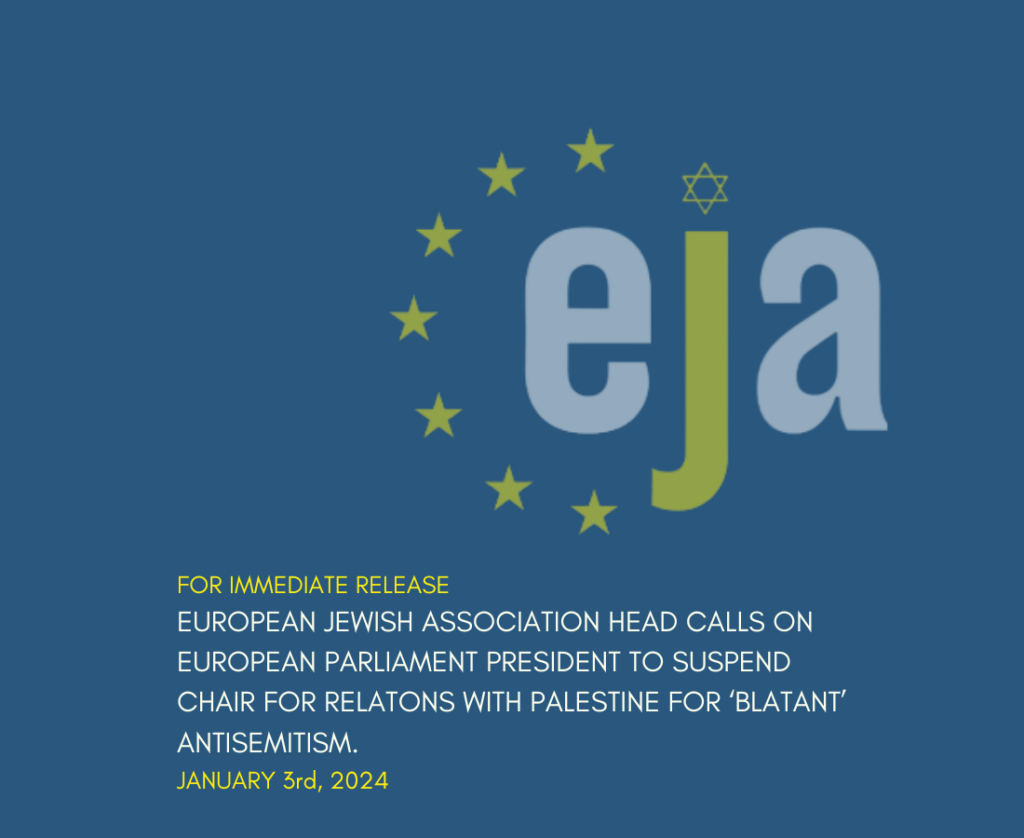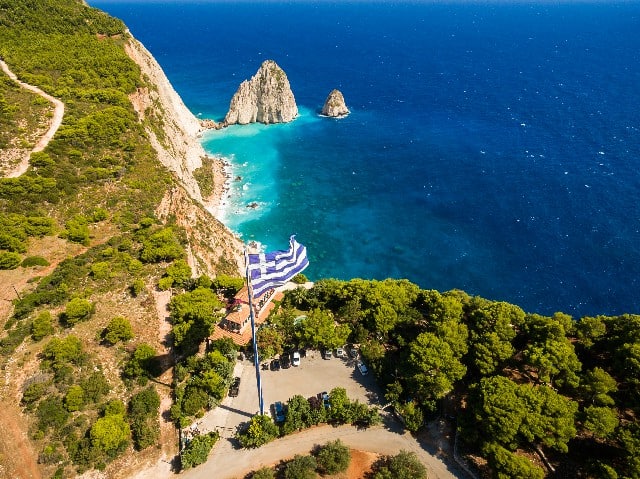MEP Manu Pineda, chair for relations with Palestine, shares Instagram post of Hitler poster with never again written on it being torn to reveal Israeli Prime Minister Benjamin Netanyahu giving Nazi salute under the headline ‘again’, a clear breach of the IHRA definition of antisemitism, of which the EU Institutions are a signatory.
(Brussels 3 January 2024) The Chairman of the European Jewish Association, Rabbi Menachem Margolin today wrote to European Parliament President Roberta Metsola calling for, at a minimum, the suspension from the European Parliament of the Chair for relations with Palestine, Spanish MEP Manu Pineda.
Mr Pineda shared an Instagram story video showing a poster of Adolf Hitler giving a Nazi salute under a banner that reads ‘never again’. A hooded man then rips off part the poster to reveal Israeli Prime Minister Netanyahu whose face and Israeli flag replace Hitler’s and the swastika, and leaving the word ‘again’ visible.
In his letter to President Metsola calling for the suspension from the House, Rabbi Margolin wrote,
“Regretfully, only 3 days into this new year, I must write to you concerning a blatant act of antisemitism committed by a Member of your house. I understand that in a war, feelings can run high. But this can never be an excuse to allow carte blanche to any hate speech, antisemitism included.
“In November 2022, I had the privilege of handing over our King David Award to you in Krakow, the next day we toured Auschwitz together. You are a leader who understands what is at stake, and the dark path that antisemitism can lead us to. I remember your inspiring words well. You said we should honour the legacy of the victims of the Shoah “by never forgetting, by never being indifferent, and by always, always speaking up”.
“Madame President, it is time to speak up. People look up to their public representatives, Mr Pineda included. The public often follow their lead.
“There is no doubt, none, that this video that he chose to share is antisemitic and breaches the IHRA definition of which the EU is a signatory. No words can be parsed here. The question is what will be done?
“In such a febrile time, with rates of antisemitism in Europe at levels unseen since WW2, doing nothing is not an option and only emboldens others to do the same.
“Mr Pineda has shown, in public, his antisemitism. You must show him that antisemitism is not welcome in the European Parliament. A suspension from the house would be the minimum we would expect.” Ends.















